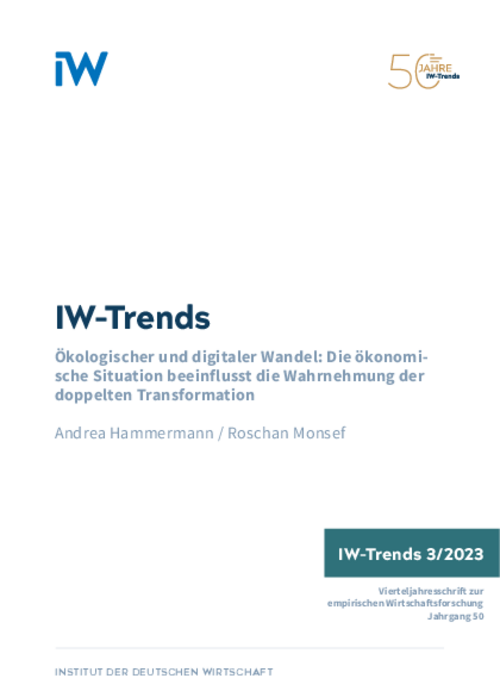The participation of the labour force is a key element in both the ecological and digital transformations, since without their effort and know-how, these parallel processes cannot be successfully completed.

The Ecological and Digital Transformations: Personal Finances Influence how these Twin Change Processes are Perceived

The participation of the labour force is a key element in both the ecological and digital transformations, since without their effort and know-how, these parallel processes cannot be successfully completed.
While change arouses fears and anxieties that could delay or even prevent the necessary adjustments, the fear of negative consequences might conceivably accelerate or facilitate a transformation. If the labour market is to be set on the right course, it is important to identify and address employees’ concerns at an early stage. Based on the Socio-Economic Panel, the present analysis examines relative levels of anxiety among the workforce concerning the consequences of climate change and technological progress. In addition to age, gender and occupational status, education and income levels play an important role in how the transformation processes are perceived and judged. Some nine out of ten middle class employees express concerns about the effects of climate change. Almost every third respondent is afraid they will not be able to keep abreast of technological progress. For those without a vocational qualification and those at risk of poverty the fear of being left behind by technological developments predominates, whereas graduates and upper-middle-class earners worry more about the consequences of climate change. The longitudinal analysis also shows that a sharp drop in household net equivalent income effectively represses climate change concerns.

The Ecological and Digital Transformations: Personal Finances Influence how these Twin Change Processes are Perceived

More on the topic

Orphaned executive chairs in German companies
In 2023, half of the companies in Germany reported increasing problems in filling vacancies for management positions because employees are not aiming for a career. Larger companies are less affected than small companies.
IW
Office work in transition: Analysis of the working conditions of office workers
Office work has changed considerably over time and reflects both technical progress and the zeitgeist of the decades.
IW